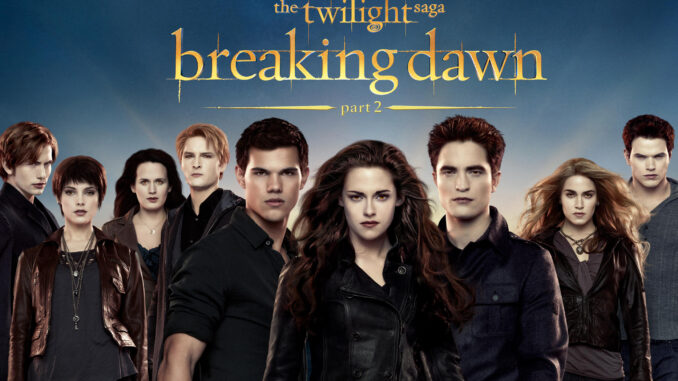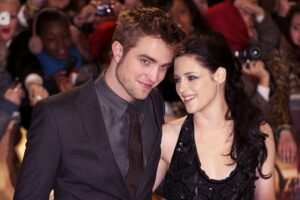
Is Twilight a feminist?
As feminism enters the mainstream, more and more people try to argue that the works that they have created are in some way “feminist works.”
Stephenie Meyer, the author of The Twilight Saga, is no exception; she argues that her book series and the main character, Bella Swan, are feminist. In her own words “the foundation of feminism is this: being able to choose. The core of antifeminism is, conversely, telling a woman she can’t do something solely because she’s a woman” (Wilson 207). Her claim that Bella is a feminist character is
entirely based on a faulty and oversimplified version of feminism, but even ignoring this, her argument still does not hold water. If, as Meyer says, feminism is the ability of a woman to make her own choices and to not be told that she cannot do something because she is a woman, Bella Swan still is not a feminist character because not only is she constantly being told what to do, she is also potentially enthralled by a vampire with explicit psychic abilities and a habit of
control and manipulation.

Feminism in the United States today has a multitude of definitions, as it is a complex and ever changing ideology. Due to this complexity, it can be hard for even those who consider themselves feminist to define it. Jaime Loke articulates a rather important point about feminism: that the mainstream U.S. media has a long history of telling the story of one group of women who all agree on a simple
and easy definition of feminism as if it were a singular issue (Loke 123).
However, there are many people who make claims such as these without ever really defining what feminism is or what it specifically means to them. The blurriness of the definition makes cultural conceptions of feminism rather varied and undefined, leaving open the room for different and conflicting ideas about what feminism is to arise, such as Meyer’s definition that it is purely about a woman being allowed to make her own choices, regardless of what they are. For
the purpose of this analysis, I will be using Meyer’s own definition of feminism.
The question of whether or not Bella Swan is a feminist character who generally makes her own decisions would matter substantially less if The Twilight Saga were not such a cultural phenomenon which was incredibly popular with women, both young and old. Overall, Meyer’s books have sold more than seventy million copies (Barnes), breaking numerous sales records across the globe (Alexander). According to the children’s books buying manager at British bookstore Waterstone, Sarah Clark: “Popular doesn’t even begin to describe itThe Twilight Saga is a phenomenon in its own right and like Harry Potter it has generated a global sensation that crosses several media” (Alexander). Its influence can be felt across the genre, having created a subset of vampire young adult romance that has quickly become clichéd due to the vast number of books like it that have been published just in the last decade. The Twilight Saga, as one of the fastest selling and most popular books of the twenty-first century, influenced the lives and thoughts of so many readers. The claim that Bella Swan is a feminist character gives these readers a false perception of what feminism is and normalizes the experiences she went through with a controlling, manipulative partner, making it seem as if her experiences are the ideal relationship model with an over-romanticized view of Edward’s less savory personality traits.
